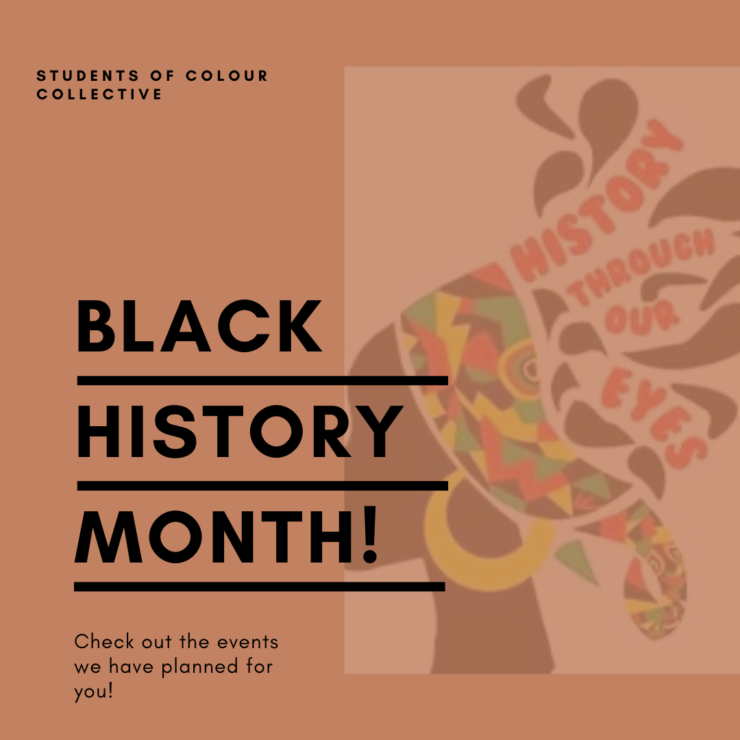Everybody is encouraged to attend the events and show support

Black History month has been celebrated every February for decades. This year, the Students of Colour Collective (SOCC) is holding four events intended to educate and celebrate Black identity and history on the lands known as Canada and North America.
The Students of Colour Collective is an advocacy group that aims to “promote and support cultural diversity on campus.” Ruth Nakalyowa, the current coordinator of the Students of Colour Collective, says that although the group focuses mostly on students, there has been a move recently to support the Greater Victoria community as a whole.
“We work to represent and support the BIPOC community, Black and Indigenous Persons of Colour, and we prioritize UVic students, but we are branching out and supporting folks in the BIPOC community in Greater Victoria,” Nakalyowa said.
Although holding events over Zoom is difficult, SOCC is not going to let the pandemic get in the way of celebrating this important month. There will be four online events open to the public throughout February. Two of the events are talks on Black history and identity. The other two are movie screenings, with one involving a discussion by the director.
The first event, on Feb. 1, was be a talk by Dominique Jacobs on Black history in Canada and the importance of celebrating Black History Month. Jacobs is the communications coordinator for the Support Network for Indigenous Women and Women of Colour (SNIWWOC). SNIWWOC is a non-profit organization based in Victoria that works to “support black, indigenous women, women of colour, youth and children take greater control over their lives.”
The second event, on Feb. 9, was a talk by Moustapha Fall. Fall is a professor in the French department at UVic, and his talk will be on “understanding Black identity in the context of Canadian mainstream culture.”
On Feb. 19, there will be a screening of the film “Dance Like Everybody’s Watching,” which was written and directed by Simone Blais, a UVic alumna, doula, dancer, filmmaker, and educator. The film follows three Black dancers, all based in Victoria, B.C., and highlights their experiences in the world of dance. The film will be followed by a workshop by Blais leading a discussion on “topics such as racism, diversity, and cultural appropriation.”
The last Black History Month event that will be held by SOCC is a screening of the film “The Boy Who Harnessed the Wind,” on Feb. 25. The film is based on a true story of a teenage boy from Malawi who is kicked out of school due to financial reasons but ends up designing and building a windmill for his small community. The movie was chosen, because it highlights a story of hope instead of trauma and pain, both of which are important to focus on according to Nakalyowa.
Black History Month, Nakalyowa says, is not only important for the Black community, but all people regardless of race. It is a simple opportunity, she said, to have a presence and show allyship.
“It’s important to show up, and not just Black folks showing up, every single person, no matter your race, to show up and show support, especially in the current climate with the resurgence of Black Lives Matter, […] and talking about racism, and really critically analyzing these aspects of our lives,” she said.
Black History Month is important, but it is also important to show support the rest of the year.
“That’s one way you can be an ally, by showing up, and not just even showing up in February, but showing up every single month when you can,” Nakalyowa said.







